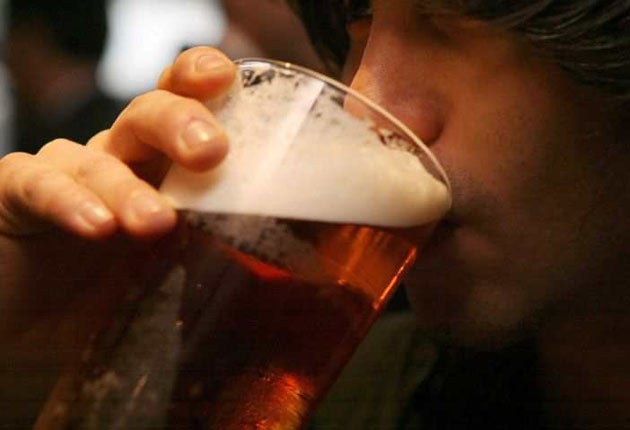Binge-drinking culture may cause dementia epidemic, experts warn

Britain could be heading for a dementia epidemic caused by heavy drinking, according to research.
The alcohol-fuelled revelry of the young and middle-aged will rack up brain damage, impairing their mental faculties in later life, it is claimed. The study by the psychiatrists Dr Susham Gupta and Dr James Warner, published in The British Journal of Psychiatry, has shown that excessive alcohol consumption can cause the loss of brain tissue, and binge-drinking is associated with an increased risk of dementia.
They warn of a "silent epidemic" of alcohol-related dementia unless urgent action is taken, and suggest that laws similar to those used to restrict smoking might be needed. Alcohol is said to account for around a 10th of all cases of dementia, and heavy drinking may contribute to almost a quarter.
The scale of the problem in the UK, fast becoming Europe's biggest alcohol consumer, has been overlooked, the scientists claim. Dr Gupta is a specialist registrar at the Chelsea and Westminster Hospital, London. Dr Warner is a consultant in older adult psychiatry in north-west London. Their research points out that the price of alcohol relative to income has halved since the 1960s and consumption has soared.
Although moderate drinking is associated with health benefits, heavy alcohol consumption and binge drinking could be highly destructive, said the psychiatrists. At high levels, the benefits of alcohol were reversed, causing high blood pressure, raised levels of harmful blood fats, and brain damage.
The researchers write: "Given the neurotoxic effects of alcohol and the inexorable increase in consumption, future generations may see a disproportionate increase in alcohol-related dementia. This could be compounded by recreational drugs, whose long-term effects are uncertain. There is a need to develop tools for assessment of alcohol-related cognitive impairment. It is difficult to motivate change in public behaviour when there is a delay between risk-taking behaviour and the onset of complications.
"Calls for initiatives aimed at educating people about the risk of alcohol-related dementia may be unpopular and ineffective. This might need similar legislation to that used against tobacco-related health problems."
Dr Susanne Sorensen, head of research at the Alzheimer's Society, welcomed the study. She said: "We don't understand how it [binge-drinking] will affect the numbers of people with dementia. We desperately need new research into the long-term effects of all types of alcohol consumption."
Join our commenting forum
Join thought-provoking conversations, follow other Independent readers and see their replies
Comments
Bookmark popover
Removed from bookmarks